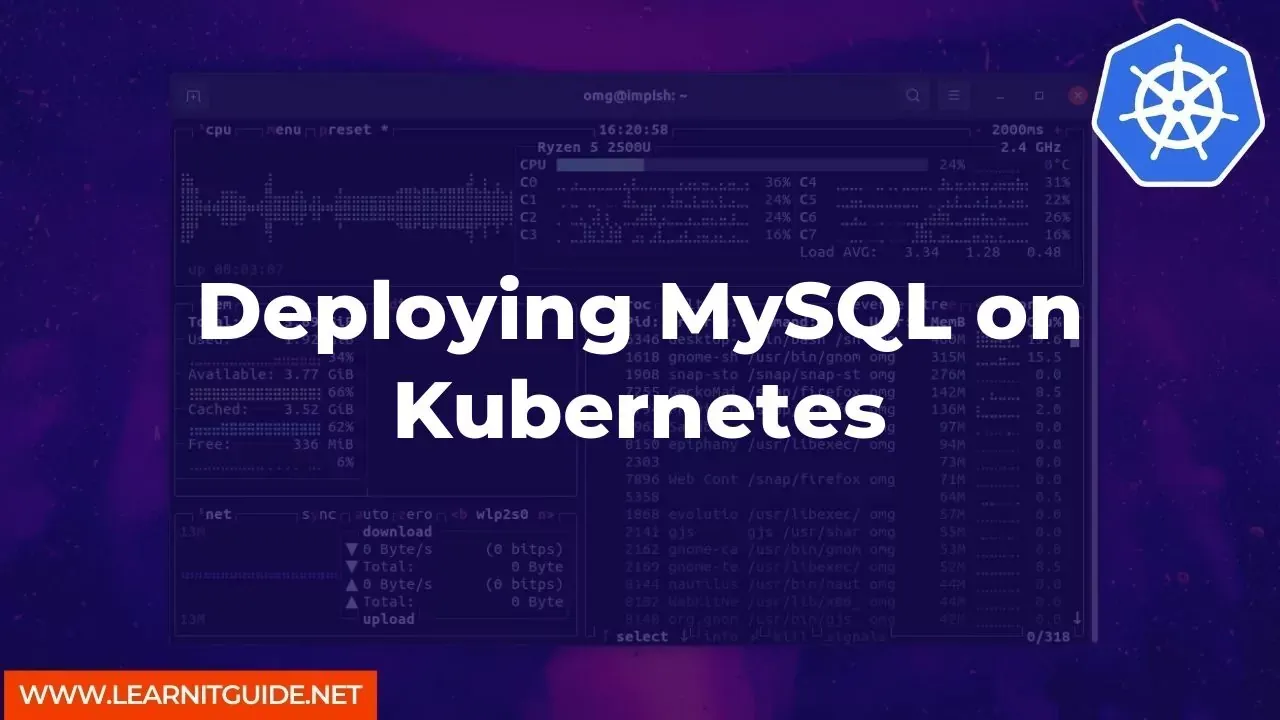Kubernetes has become one of the most popular container orchestration platforms in recent times. It offers a lot of benefits, such as automated deployment, scaling, and management of containerized applications. In this article, we will discuss how to deploy MySQL on Kubernetes.
Introduction to MySQL
MySQL is one of the most widely used open-source relational databases that offer high performance, scalability, and robustness. It is used by many companies for various applications such as e-commerce, social media, and healthcare. can help in managing and scaling the database more efficiently.
Prerequisites
Before we dive into the deployment process, we need to ensure that we have the following prerequisites:
- A Kubernetes cluster: You can set up a cluster using a cloud provider such as AWS or Google Cloud, or you can use a local cluster such as Minikube.
- Kubernetes command-line tool: You need to have kubectl installed on your system.
- Docker: You need to have Docker installed on your system to build and push the MySQL Docker image to a Docker registry.
Steps to Deploy MySQL on Kubernetes
- Create a Kubernetes deployment:
The first step is to create a Kubernetes deployment for MySQL. You can create a deployment using the following command:
kubectl create deployment mysql --image=mysql:latest
This command will create a deployment named "mysql" using the latest MySQL Docker image.
- Expose the deployment as a Kubernetes service:
The next step is to expose the MySQL deployment as a Kubernetes service using the following command:
kubectl expose deployment mysql --port=3306 --type=LoadBalancer
This command will create a Kubernetes service for the MySQL deployment, which is accessible outside the cluster via a load balancer.
- Verify the deployment and service:
You can verify the deployment and service using the following commands:
kubectl get deployments
kubectl get services
These commands will show you the status of the MySQL deployment and service.
- Connect to MySQL:
To connect to the MySQL instance running on the Kubernetes cluster, you can use the load balancer's IP address and the port number exposed in the previous step.
mysql -h <load-balancer-ip> -P 3306 -u <username> -p
This command will connect to the MySQL instance running on the Kubernetes cluster.
can help in managing and scaling the database more efficiently. In this article, we discussed how to deploy MySQL on Kubernetes using a few simple steps. By following these steps, you can quickly set up a MySQL instance on your Kubernetes cluster.
Related Searches and Questions asked:
That's it for this post. Keep practicing and have fun. Leave your comments if any.








0 Comments